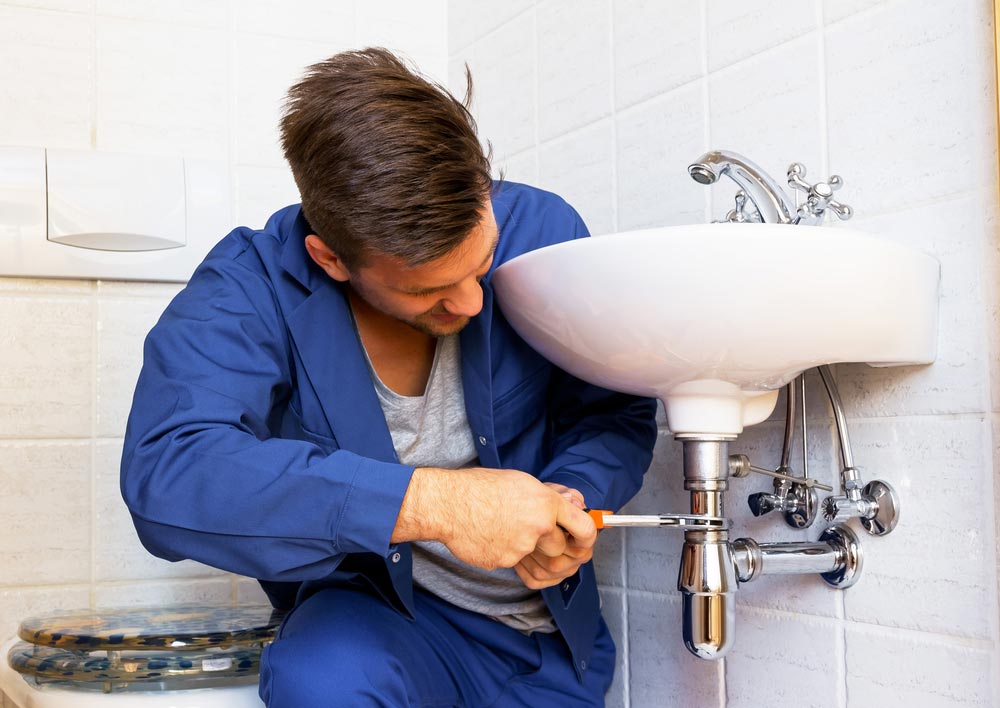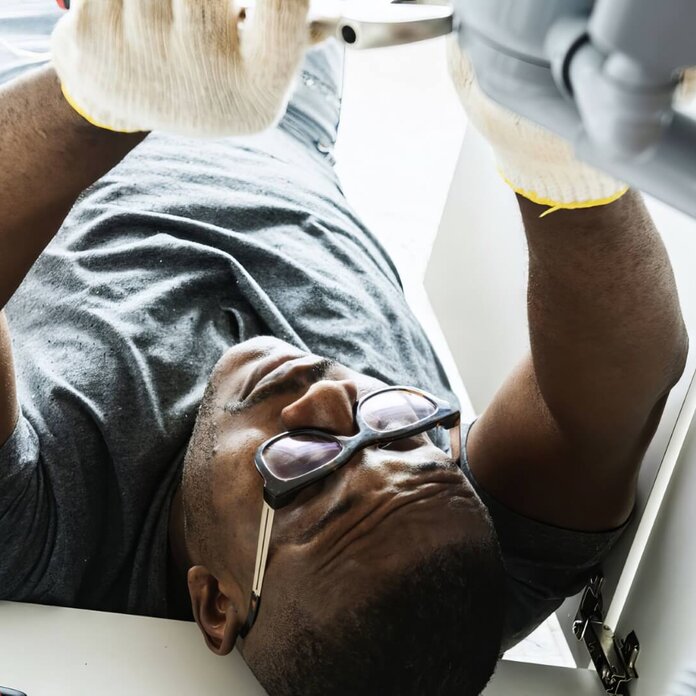Quick Solutions for Emergencies: What to Do Until Help Arrives
Quick Solutions for Emergencies: What to Do Until Help Arrives
Blog Article
What're your ideas concerning What to Do While Waiting for an Emergency Plumber?

Pipes emergency situations can strike at any moment, creating stress and possible damages to your home. Whether it's a burst pipeline, a clogged up drainpipe, or a leaking faucet, knowing how to manage the scenario until a specialist plumbing professional shows up can save you from more issues. This short article gives vital emergency pipes tips to aid you reduce damage and reclaim control during a pipes situation.
Turn Off the Water Supply
The very first step in any pipes emergency situation is to shut off the supply of water. For local concerns, such as a leaking tap or toilet, turn off the valve near the fixture. When it comes to a significant leak or ruptured pipeline, situate your home's major water shut-off shutoff and transform it off instantly. Understanding the place of these shutoffs in advance can conserve beneficial time throughout an emergency situation.
Shut Off Your Water Heater
In specific emergency situations, such as a ruptured pipeline, it's smart to turn off your water heater. This stops overheating or damage to the unit when water stops flowing. Turn off the power supply to the water heater (electric or gas) and allow it cool to stay clear of possible threats.
Momentarily Stop a Burst Pipeline
A ruptured pipeline can cause considerable water damage in minutes. To reduce the issue:
Call a professional plumber immediately to resolve the trouble permanently.
Have an Emergency Plumbing Kit
Prepare a standard pipes emergency kit to take care of small issues efficiently. Your package must include:
Having these devices available can make a significant distinction in your capability to manage emergency situations.
Unclog Drains Securely.
A blocked drainpipe can be an irritating and untidy problem. Here's just how to tackle it:.
If these methods do not function, stay clear of using extreme force, as it may intensify the clog.
Take Care Of Overflowing Toilets.
An overflowing commode can cause prompt disorder. Right here's what you need to do:.
Address Small Leaks with Momentary Solutions.
Small leakages can swiftly become considerable problems if left uncontrolled. Utilize these short-lived fixes until expert aid arrives:.
While these fixes aren't long-term, they can assist decrease water loss and damages.
Take Care Of Frozen Pipes Very Carefully.
In cooler environments, icy pipes are a common emergency situation. If you believe an icy pipe:.
Know When to Call an Expert.
While quick fixes can help temporarily, certain pipes concerns need instant expert attention. Call a plumbing technician if:.
Promptly getting in touch with an expert makes sure the concern is settled appropriately and avoids further difficulties.
Stop Further Damages.
Taking fast action to decrease damages can save you time and money over time. Right here's how:.
Final thought.
Pipes emergencies can be frustrating, however with the appropriate understanding and devices, you can manage the circumstance effectively up until aid shows up. By turning off the supply of water, resolving small leakages, and using momentary solutions, you can reduce damages and maintain your home safe. Keep in mind, these ideas are short-lived services; constantly consult a certified plumbing professional to take care of the root cause of the issue. Prep work and quick thinking are your finest allies in any kind of plumbing emergency situation.
8 Helpful Tips for Managing Plumbing Emergencies at Home
If your plumbing system hasn’t failed once, wait for it because almost everyone has a story to tell. Sometimes, it could be simple emergencies such as a leaking pipe, a blocked cistern, or even a big burst pipe. In situations like this, you need to have some handy tips to save you some money and from possible damages.
Take care of minor issues early.
Sometimes, you could have avoided an emergency by taking proactive measures while it was still early. Some major plumbing emergencies can be a result of an ignored minor issue. We recommend that you have items like plumbing tapes and other related items. A plumbing tape can allow you to manage minor leaks before the plumber arrives.
Cut off the water supply.
This tip is essential in almost any type of leakage problem. For problems like minor leakages in the toilet or kitchen, turn off the supply that takes water to the affected pipes. If the leakage is a major pipe, you must shut off the supply valve to the entire building. This will help you avoid flooding your home and neighbors if you share a flat.
Know your plumbing system
Folks typically move into a new apartment without understanding the water supply around the building. This can prove disastrous if a water emergency arises and the plumber is far away. The previous tip will prove useless if you don’t practice this one. More importantly, know where your water shut-off valve is located – you’ll need that knowledge to prevent potential home floods.
Have some common handy tools
There are lots of plumbing emergencies that you can handle without hiring a plumber. That’s why you must keep some tools available always. Some tools that you can use to fix simple plumbing emergencies easily include plumbing tapes, screwdrivers, thread seal tapes, plungers, pliers, tape measures, and rubber gloves.
Insulate your pipes from cold
You’ll save yourself from many plumbing expenses if you protect your water pipes from the cold. This is because of the harmful effects that cold weather can have on your pipes. During winter, your pipes can burst from being overly expected to freezing temperatures. So, make sure insulators are there to keep the pipes working correctly.
Avoid practices that will clog your toilet.
Many people indulge in practices that can damage the plumbing system of the entire building. One of these is when they use their toilet to dispose-off garbage. They flush all kinds of things, such as paper towels, bandages, hairs, female sanitary products, etc., down the toilet. This will block your toilet in the long run, incurring unnecessary expenditures. Dump such waste in the trash instead.
Check your dials regularly.
Sometimes, there could be leakages in your home without noticing them in time. So, constantly monitor your water meter dial. If the dial is reading when there is nobody using water, this is an indicator that there is leaking. Check for leaks immediately. Call a plumber as soon as possible if you can’t find any.
https://www.constructionplacements.com/8-helpful-tips-for-managing-plumbing-emergencies-at-home/

Hopefully you enjoyed our section on What to Do During a Plumbing Emergency. Many thanks for taking the time to browse our blog. Loved our entry? Please share it. Help someone else find it. Thank you so much for your time invested reading it.
Details Report this page